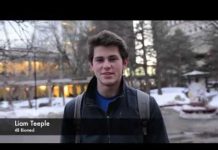As 1,150 Syrian refugees find new homes in the Waterloo Region, community planners and policy makers within the region have to consider how to best support this influx of new comers. To further discuss this, UW hosted a panel to examine the role of KW’s student population in designing community support structures.
In a panel held by the School of Planning and Association of Graduate Planning Students Jan. 25, five experts were invited to discuss resettlement concerns for refugee populations. Sitting at the discussion were: Ghada Al-Shurafa from the Muslim Association of Canada: Embrace Syria; Yasmine Bennet-AbuAyyash from the Arab Community Centre of Toronto; Edmund Pries, assistant professor from WLU; Eunice Valenzuela from the Mennonite Coalition for Refugee Support; and City of Kitchener’s Mayor Berry Vrbanovic.
In understanding discourse around refugee concerns, two factors must always be considered: faith and education. “[Those] are two things they can’t take away from you, what’s in your head, and what’s in your heart,” Pries said.
With multiple post-secondary establishments in the Waterloo Region, education is obviously a central facet of the community.
According to Pries, it’s important for students to understand how they fit into this newly extended community. Both Laurier and UW have made multiple efforts to assist Syrian newcomer families, from food drives, to fundraisers, to offering translating services and housing.
As the panel’s discussion came to a conclusion, one audience member asked the experts to comment on how housing will have to be developed to meet Syrian family needs. Addressing this, Vrbanovic explained that, typically, Syrian household’s tended to be larger than Canadian families and finding units that will accommodate them will be a challenge. Families also face three to five-year waiting lists. According to Vrbanovic, the solution is to top up federal funding to make it easier for families to afford housing.





























